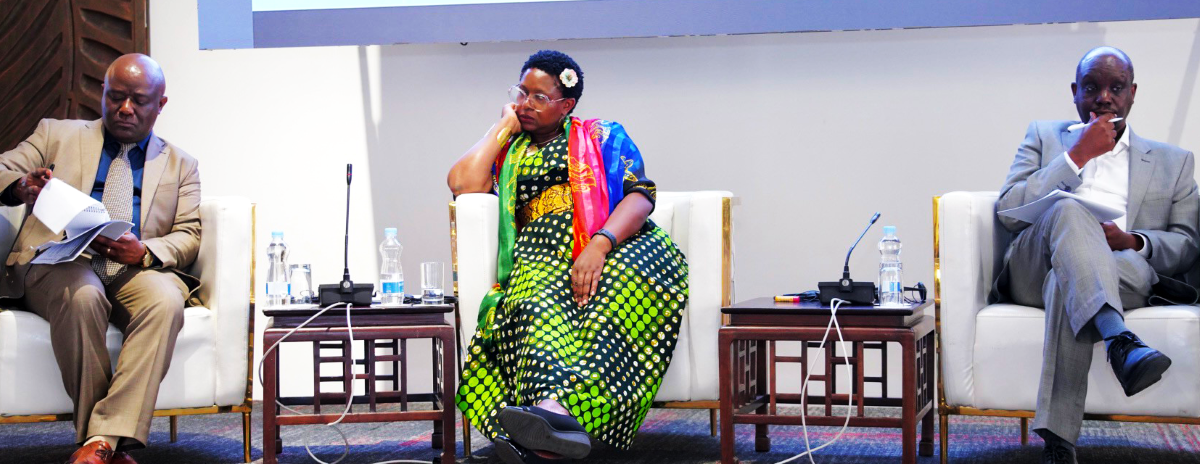African Ministers of Health, Finance and Trade, experts and development partners have adopted an approach towards the transitioning of the African Free Trade Area anchored joint Pharmaceutical Initiative.
The Africa pharmaceutical market was valued at USD 26.85 billion by 2023.
But it is predicted to expand at a compound annual growth rate of 3.4 percent in the seven years spanning between 2024 and 2030.
This growth is fueled by rising health-consciousness, increasing demand for pharmaceuticals due to chronic diseases, and affordability.
Now the new Pharma Initiative is essentially meant the start-up Phase of the African Pooled Procurement Mechanism (APPM) ensuring continuity and keeping the momentum in advancing healthcare access, kick starting industrialization, and ensuring economic and health security on the continent.
In their recommendations drawn from the conclusion of their meeting held in Mombasa, Kenya, the ministers agreed that the African Pooled Procurement Mechanism, will facilitate the seamless transition of the AfCFTA-anchored Pharmaceutical Initiative into the startup phase of the APPM.

The initiative is led by the Africa Centers for Disease Control and Prevention (Africa CDC) with support of Afreximbank and the Economic Commission for Africa (ECA)
“The Economic Commission for Africa, Afreximbank and Africa CDC, will also initiate pooled procurement of the products already selected under the Pharma Initiative, gradually expanding to include more products and manufacturers,” read the ministers’ resolution.
They pointed out that the African Union Development Agency (AUDA-NEPAD), will accelerate the operationalization of the African Medicines Agency (AMA) to enhance access to quality, safe, and affordable medical products across the continent.
Stephen Karingi, Director, Regional Integration and Trade Division at ECA said APPM will provide a collaborating framework of common regulatory and quality standards to ensure that pharmaceutical drugs and products are effective, affordable, and safe.
“Linking this health initiative to AfCFTA and AMA presents great opportunities with a potential to change lives, reduce poverty, and contribute to inclusive and sustainable economic development for the continent,” said Mr. Karingi.
He noted that implementation of the Pharma Initiative is geared towards fostering inclusive and sustainable socioeconomic development through a single market of approximately 1.4 billion African people who continually face disproportionate impacts of diseases and high costs of importation of critical life-saving health products.
According to Dr Abebe Bayih, Acting Coordinator of the Partnership for African Vaccine Manufacturing (PAVM), APPM, just like the Pharma initiative, will be anchored on localized pharmaceutical production, pharmaceutical pooled procurement, and a harmonized regulatory and quality standard framework,”
Focus in the start-up phase of the APPM will now also include Sexual, Reproductive, Maternal, Neonatal and Child Health (SRMNCH) to showcase a proof of concept in the ten African countries from the Pharma initiative; Comoros, Djibouti, Eritrea, Ethiopia, Kenya, Madagascar, Mauritius, Rwanda, Seychelles, and Sudan.
“A pooled procurement of a minimum of five Sexual, Reproductive, Maternal, Neonatal and Child Health (SRMNCH) medicines is an important part of the startup phase of the APPM,” he said.
“The successful execution of the SRMNCH pooled procurement in the start-up phase will provide credible and reliable evidence to Africa countries, and other stakeholders and will create the impetus for the scale up phase.”
Kwabena Ayirebi, Director, Banking Operations at Afreximbank, emphasized the importance of risk assessment and foreign currency integration in financing African healthcare.
He reaffirmed the bank’s willingness to support the initiative and move quickly to ensure its success in the area of financing and any other immediate implementation needs.
Bernard Valentin, Permanent Secretary Ministry of Health, Seychelles highlighted the need to minimize the risk associated with falsified and substandard medicines in the African market and ensure quality, safe and affordable medicine and medical devices in Africa.
Tom Mende from Kenya’s ministry of Health said the initiative will prevent negative consequences of competitive buying and ensure compliance with public procurement laws in Kenya.
He said there is need to ensure countries have national medical record systems to fill in the data gaps on the continent and for reliable access to information.
The APPM is the result of a decision of the African Union Summit, where the Heads of State and Government recognized the need to establish the pooled procurement mechanism under the leadership of Africa CDC and endorsed the AMSP as the platform for the mechanism. Consequently, the AfCFTA-anchored Pharma Initiative is now being implemented in the APPM.
The three-day meeting is jointly organized by the Economic Commission for Africa, Africa Centres for Disease Control and Prevention (Africa CDC), African Union Development Agency (AUDA-NEPAD) and partners.

